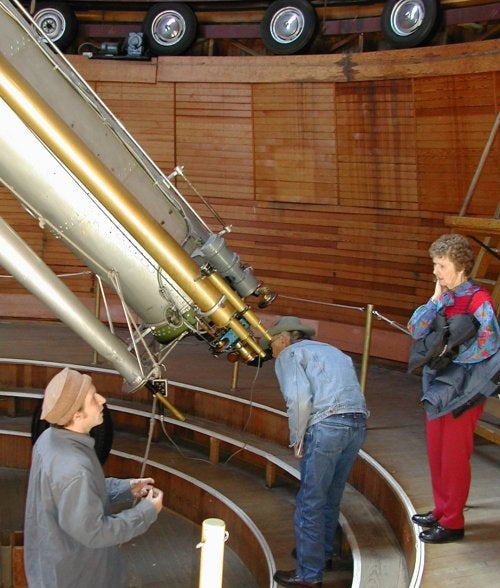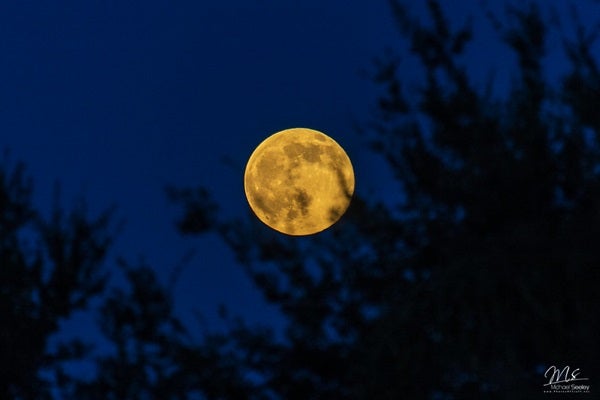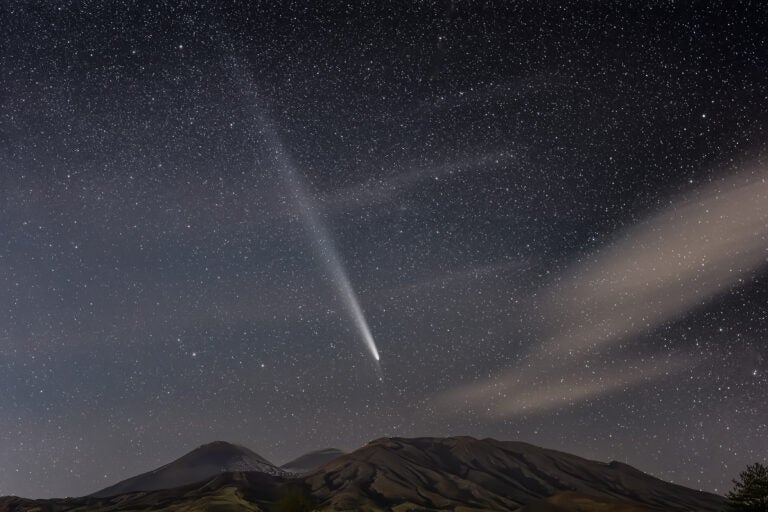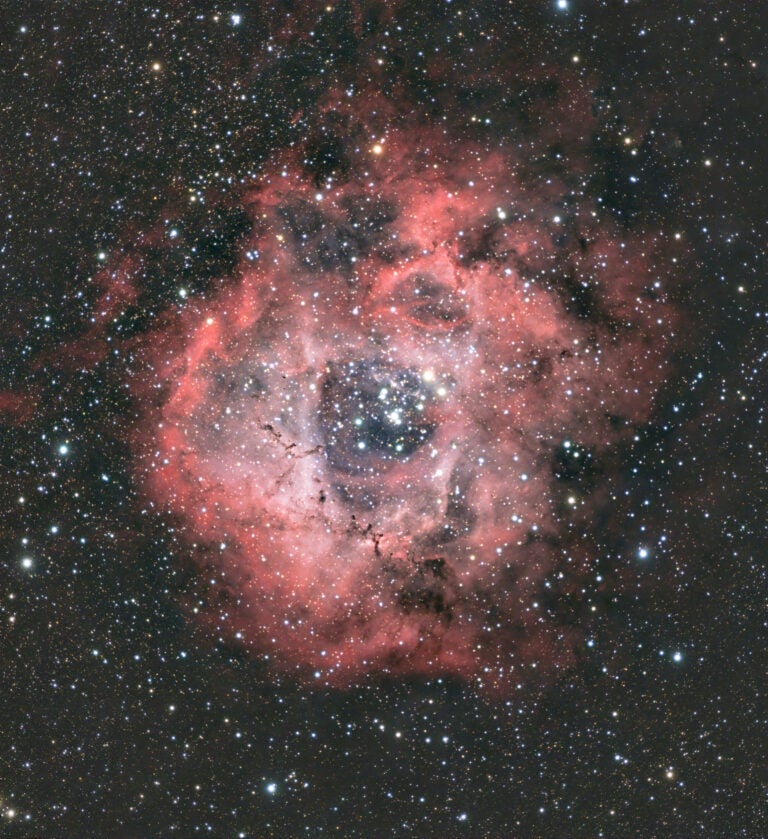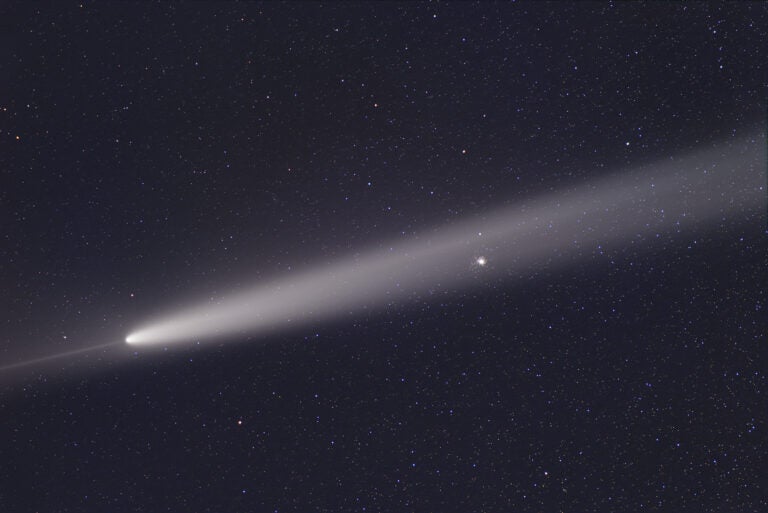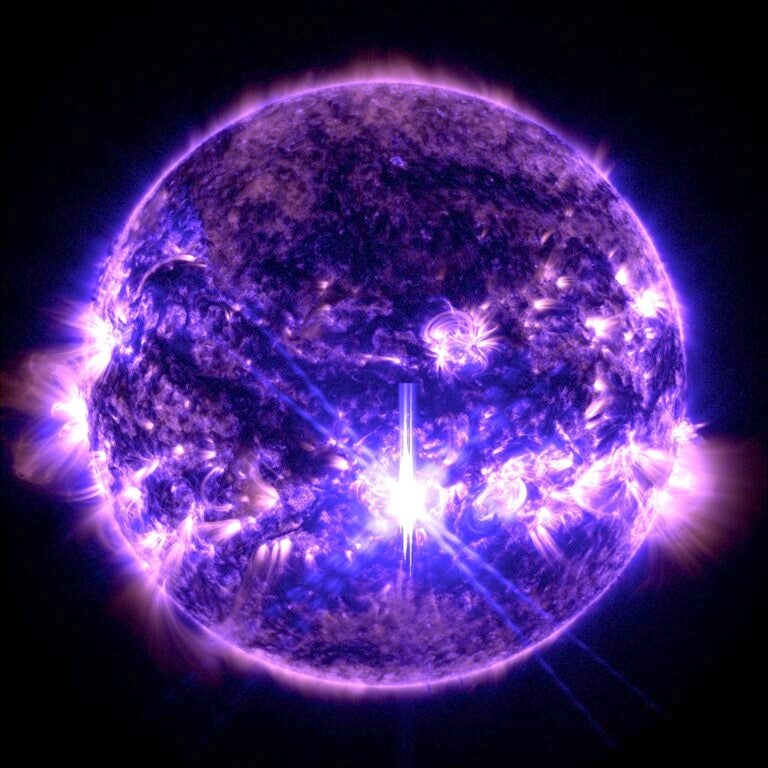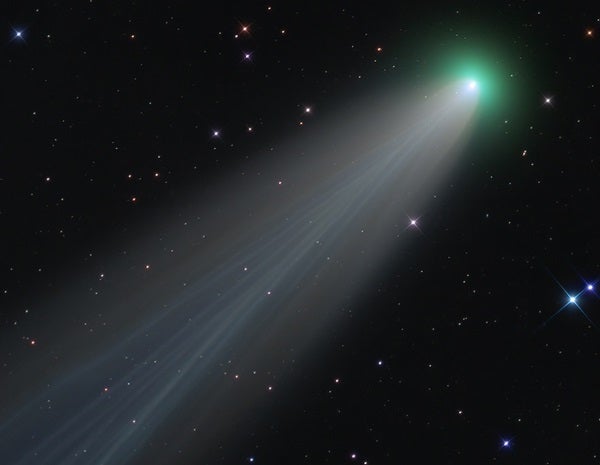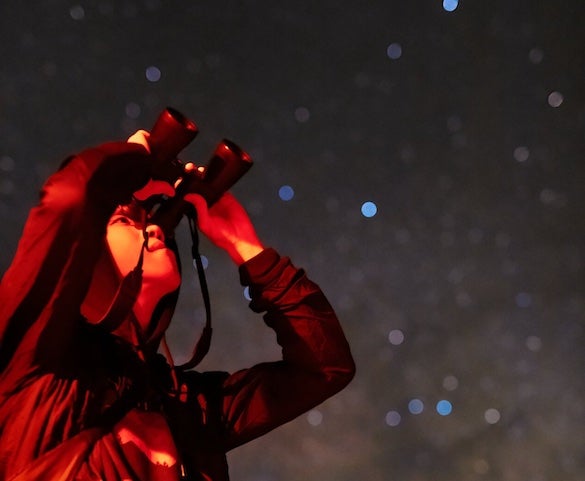Last month, we looked at the Cheshire-cat Moon — that luminous “grinning” Moon that greets our eyes during its crescent phase. After sunset April 1, the Cheshire cat eats the stars! Honestly, this isn’t an April Fool’s joke. That evening, the Moon will pass in front of the Pleiades cluster (M45) and periodically hide stars from view. This event favors observers in eastern parts of the United States and Canada. If you live outside these areas, you can still enjoy the beautiful sight of a thin crescent Moon close to this bright cluster.
Whenever the Moon passes in front of a star (an event called an occultation), it’s an interesting sight to behold. In the final seconds before immersion (the star’s disappearance behind the Moon), the Moon appears motionless as the star slowly “crashes” into it. Because the Moon has no atmosphere, and the star is essentially a point source of light, the star blinks out
of view suddenly.
The moment of emersion (the star’s reappearance) is hard to capture. Because the Moon hides the star, you never know where or when it will reappear.
When viewing an occultation, I stare for extended intervals around the predicted time of emersion so I won’t miss anything. The tactic often backfires, because my eyes soon get tired and dry, which forces me to close them for a second or 2. One extended blink and — oops! — the star has already reappeared. Fortunately, Pleiades occultations offer more than one chance to witness an immersion or emersion.
For information on the visibility of the Moon-Pleiades encounter, read “High Moon” by Martin Ratcliffe on page 78 or turn to “The sky this month” on page 52 — coauthored by Martin Ratcliffe.
Happy Astronomy Day! I realize Astronomy Day isn’t scheduled until Saturday, May 6, but like any major holiday, we need time to prepare. Astronomy Day gives enthusiasts an excuse to promote their hobby by reaching out to the public via displays and demonstrations in local shopping malls and through public star parties.
In 1973, Astronomy Day began as a single event in California. Now, many astronomy clubs host Astronomy Day activities. In fact, the celebration isn’t limited to a single day. This year, May 1–7 has been designated Astronomy Week.
Check Astronomy.com for listings of astronomy clubs and upcoming Astronomy Day events. Notice to astronomy club members: If your club and/or Astronomy Day activities don’t appear on our lists, take a few minutes to announce your club’s event to Astronomy readers.
Gotta go. I’m running a 5K road race this afternoon. On the way home, I’ll probably stop by the local fishin’ hole to make a few casts. Then it’s off to the batting cage to get my timing down. And once it’s dark outside, you know where I’ll be!
Questions, comments, or suggestions? E-mail me here.


